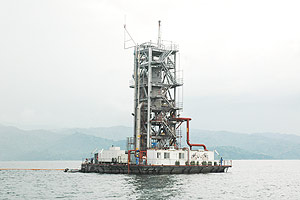Mon 14 Dec 2009
World first commercial 4G network in Stockholm
Posted by NZEYIMANA Emery Fabrice under Africa , Business , English , Politics , Rwanda , Sverige , WorldComments Off
Tomorrow will see the world’s first commercial 4G mobile network here in Stockholm. In the beginning, it is expected that speeds will be around 50MBps and grow to around 80MBps. TELIA is currently the only operator offering it ( http://www.telia.se/4g )
With 4G, users will be able to watch live HD videos using their mobile broadband.
In my view, less connected countries like those in Sub-Saharan Africa might gain by investing in 4G wireless networks instead of spending their limited resources on outdated wired networks that come with other challenges especially when trying to expand them.
By building 4th Generation networks, African countries would be able to combine services like TV, Phone and Internet and all this using an easy to deploy wireless system. Being a new technology makes it expensive but I sure am that, with time, it will become affordable.


